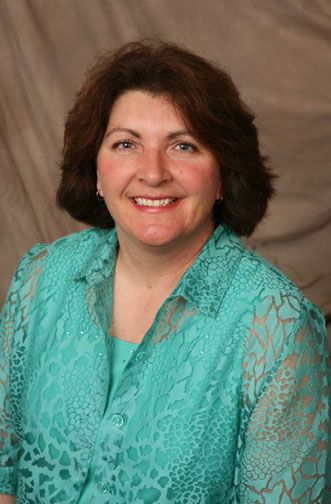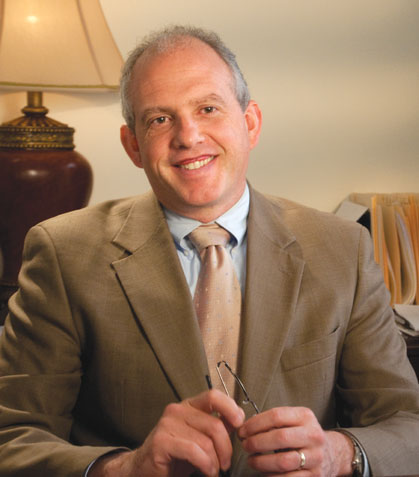Hidden treasure is not worth much until it is uncovered. And when that treasure is a little-known Rhode Island pilot program that set out to boost resident-centered care (RCC) among nursing home providers but accomplished much more in the process, the payoff in unearthing the hidden gem can be a boon for state
and providers alike.
In this case, the pilot seemed to accomplish the unattainable by transforming hardened nursing home surveyors into ardent supporters of RCC and culture change.
Conceived, implemented, and completed between 2006 and 2008—just before the Great Recession hit the country and changed nearly everything touched by the economy—the program was considered an unqualified success by everyone involved.
What’s more, its initial mission to boost RCC among nursing home providers in the Ocean State became almost a secondary accomplishment, compared with the way it seemed to convert surveyors’ perspective about the regulations and their capacity to support and foster RCC.
The Discovery
Evidence of the pilot’s existence was uncovered by a group of determined graduate students in search of a better way to present a model for improving the
nursing home survey process. The group in question consisted of this author and three classmates as we reached the halfway point of a master’s curriculum at the University of Maryland Baltimore County’s Management of Aging Services program.
We were frustrated with the lack of viable models for turning the unpopular and notoriously adversarial survey process into a more collaborative and educational practice. But then Google came through and revealed to us the pearl that is known as the Rhode Island Individualized Care Pilot.

Making the discovery even more serendipitous was the fact that two of the major players in the pilot were now working in my office: David Gifford, MD, who at the time of the pilot was the director of the Rhode Island Department of Health, and Marguerite McLaughlin, who served as senior program administrator for Healthcentric Advisors, Rhode Island’s quality improvement organization (QIO).
“I think the pilot had as big, if not a bigger effect, on the surveyors than the providers,” Gifford said during a series of interviews for the class project. “When I become director of health, I had always wanted to implement culture change differently.” And so, Gifford, who now serves as senior vice president of quality for the American Health Care Association (AHCA), created the pilot along with Mary Jane Koren, MD, former vice president at the Commonwealth Fund, in an effort to ensure the survey process was not a barrier to culture change.
Helpful Toolkit Lost To Recession Woes
The entire pilot, which began in December 2006 and ended in November 2008 with a successful evaluation and a toolkit that offers states a step-by-step guide, including recommendations and lessons learned, has since been relegated to relative obscurity.
An unlikely victim of the recession, the intention of the pilot’s creators was to take it on a roadshow of sorts and tout it to the masses. But when the economy tanked, the state’s survey agency cut its staff and imposed a hiring freeze.
“We hit the recession, lost funding and some surveyors, and got to the point where we were treading water,” says Gifford.
“A lot of things were happening at that time,” says Andrew Powers, who was training coordinator for the Rhode Island Office of Facilities Regulation at the time of the pilot.
In addition to the recession taking its toll, the states were also moving into the Quality Indicator Survey system (the new survey process of the Centers for Medicare & Medicaid Services [CMS] at the time), Powers notes. “And in our state, we have 18 long term care surveyors, while other states have hundreds. The places we did share it with thought it was interesting, and I don’t remember getting any negative feedback about it,” he says.
The one question he did get from other surveyors was, “How much time does it take?”
And so, with no funding to take the show on the road, the toolbox was mailed to the state survey agencies, but little else followed.
Thanks to the intrepid advocates’ passion about the pilot, however, “the team would still be willing to go help any state that wants to do it,” Gifford says.
Accomplishments
With support from CMS, the pilot had accomplished the following at its completion in 2008:
■ Asked supplemental questions and observations as part of every standard federal recertification survey in Rhode Island between Nov. 1, 2007, and April 30, 2008 (51 surveys);
■ Conducted enhanced surveyor training prior to and during the pilot period; and
■ Provided information about individualized RCC practices to nursing homes during and after the pilot period, in collaboration with Quality Partners of Rhode Island (now called Healthcentric Advisors).
In addition, 42 surveyed facilities received educational on-site visits from the QIO during or shortly following the survey, and all Rhode Island nursing homes received a binder with educational resources, including copies of CMS’ webinar series, titled “From Institutional to Individualized Care.”
Ten volunteer nursing homes participated in a “guided change process” with Quality Partners to implement practices to promote individualized, resident-centered care, such as consistent assignment, noise reduction, or resident-directed choice of waking and sleeping.
Goals Target Quality Of Life
The supplemental survey interviews and observations targeted three areas related to individualized, RCC:
1. Resident-directed choice of waking, sleeping, and bathing.
2. Personalized environment regarding sound levels, personalized rooms, access to public/common areas, homelike bathrooms, and dining alternatives.
3. Staff-resident relationships that supported quality care and quality of life via consistent assignment and the resident being known as a person whose concerns were sought after, known, and responded to satisfactorily.
Through the annual recertification survey, the surveyors asked questions that ferreted out answers to the three targeted areas of RCC, while QIO representatives, attending the surveys in a “ride-along” capacity, worked with nursing home staff to educate them about RCC practices.
The supplemental interview questions focused on whether resident preferences for waking, sleeping, and bathing were met; whether any systems/processes were in place to assess these or other preferences; and whether the facility was engaged in broader efforts to orient staff and care practices to resident quality of life.
Online surveys were sent to administrators at all Rhode Island nursing homes pre- and post-pilot. Based on reports from participating homes, the pilot helped nursing home administrators understand, consider, and implement RCC.
“The findings paint a promising picture about the potential to spur provider change through a multipronged approach centered on the regulatory process,” according to an evaluation of the pilot conducted by Gifford and David Stevenson, PhD, associate professor of health policy at Harvard Medical School.
The Power Of Questions
Prior to the pilot’s launch, the state’s nursing home surveyors underwent nearly 20 hours of training to learn about RCC and the protocols of the pilot. In addition to the training sessions, there were follow-up discussions after each pilot survey and during monthly staff meetings.

Gifford and Stevenson assert in their evaluation that the training “encouraged surveyors to examine their attitudes about RCC, instructed them about how to establish facility compliance with regulatory standards, and educated them about how to approach staff and resident interviews.”
Gifford sums up how the supplemental questions conveyed the message that the agency was serious about RCC: “When a survey agency goes out and asks a question, word spreads, and that’s a powerful intervention.”
Representing the QIO during the pilot was McLaughlin, who made many of the ride-along visits. She recalls how conveying some minor aspects of RCC to nurse assistants made a major impact.
“We started having brown bags where surveyors and providers would get together to discuss a chosen topic,” says McLaughlin, who is now AHCA senior director of quality improvement. “For example, a provider might ask, ‘Can I have soup on my 24-hour food bar?’ and a surveyor would respond with the answer or say, ‘I’ll find out and get back to you.’”
Those interactions were quite powerful, says McLaughlin, especially in light of the way in which surveyors and providers have traditionally communicated.
“One thing [the pilot] did for many surveyors was to get them away from the traditional goal of just protecting residents’ health and safety and enabled them to see that while health and safety are very important, people also have rights to make decisions that aren’t always in their best health and safety interests,” says Powers, who now oversees all assisted living surveyors in Rhode Island.
“So, before the pilot, a surveyor might say ‘no’ to a resident who was diabetic and wanted to have a doughnut, but now he might recognize that the resident had a right to do what she wanted.”
From Regs To ‘Second Nature’
As part of the pilot’s evaluation, the Rhode Island Department of Health conducted
on-camera interviews with the participating surveyors to get their feedback on the process.
The videos reveal how the pilot changed surveyor attitudes about RCC. “It became second nature to include the resident’s choice in everything we did, even though [the item had always been on the survey],” said one surveyor.
A statement from another sounds more like the sentiments of an ardent culture change activist: “If we are truly going to call facilities [residents'] homes, then we need to treat it like they are home,” she says.
Yet another reflects on the specific quality-of-life questions with regard to enabling residents to sleep in in the mornings. “Now I see things very differently in that a resident obviously doesn’t need to be up until he or she is ready to get up, and that starts their whole day in a positive way,” the surveyor says.
What began as an effort to get government to be an enabler and not a barrier to how the survey process promotes RCC turned into a way for surveyors to make life better for residents, says Gifford.
“What this did was allow [surveyors] to shift their focus from regulatory compliance to understanding that the survey process was about the resident and individualized care. So they were asking questions about practices that were there, and that allowed them to see it in a new light,” he says.
The Beauty Of OBRA '87
At the heart of all nursing home regulations, of course, is the Omnibus Budget Reconciliation Act of 1987—more widely known as OBRA ’87. Born out of a need to improve resident quality of life and quality of care in nursing homes, OBRA ’87 established a series of uniform standards for Medicare and Medicaid-certified nursing homes.
According to an evaluation of the pilot, OBRA ’87 reforms “were meant to ensure that residents’ rights and quality-of-life standards had a regulatory status equal to that of medical care quality.”
“Resident-centered care is arguably at the heart of the OBRA ’87 standards, emphasizing residents’ rights and quality of life,” Gifford and Stevenson say in the evaluation.
The two further note that at the foundation of the pilot was the promotion of RCC during the annual recertification survey, with the “two primary rationales for the pilot being 1.) resident-centered care is at the
heart of OBRA ’87; and 2.) despite uncertainty about whether the current survey process performs optimally, regulation can be a powerful tool for change.”

Carmen Bowman, a former survey or turned consultant, public speaker, and culture change advocate, is passionate about the notion that OBRA ’87 supports RCC. In fact, she often cites Koren, who is the former survey director in New York, in her presentations on the topic: “Often it is the interpretation of the regs by some surveyors that might make things difficult for innovators. That requires a different solution than eliminating the OBRA regs,” Koren has been known to say.
Other States Partner To Boost RCC
“The regulations are so beautiful and so supportive of culture change,” says Bowman, who is a longtime supporter of the power of collaboration among all long term care stakeholders.
“When it comes to promoting culture change and person-centered care, we really need to partner with all stakeholders in the process, including surveyors and
culture change coalitions in the state. In fact, what good is a culture change coalition if it is not pushing the envelope or asking for meetings with the regulators to discuss it, to talk about, to partner and move forward and to create better?”
Bowman points to an example from Minnesota, where the survey agency partnered with culture change advocates to get rid of alarms in all nursing homes. Elsewhere, although there is no evidence that the Rhode Island pilot has been replicated, Bowman keeps track of how states are collaborating with survey agencies in an effort to boost RCC.
In California, the CMS Western Consortium is highly involved in the state’s culture change coalition, along with the survey agency. In Arkansas, the state survey agency was part of the culture change coalition that helped push through legislation that has promoted Green House homes, the Eden Alternative, universal workers, and the rewriting of state regulations to encourage culture change practices.
In Oregon, a surveyor served on a culture change coalition team, and in Kansas, the state’s secretary of aging was highly involved with culture change.
Bowman is also a proponent of providers that take risks when implementing RCC practices in their communities. “You risk deficiencies every time survey takes place in your building. You can continue to provide care in the ‘old way’ and risk deficiencies or move toward the ‘new way’ and risk deficiencies,” she says.
Replicating The Rhode Island Pilot
Gifford and others remain passionate about the ability of the Rhode Island pilot to transform attitudes about RCC.
“We just gave surveyors a whole new perspective,” says Gifford, referring to the pilot. “And it also got them out of the chart and talking more to staff and residents about what was going on. So they got a better feel about what was happening in the facility.”
The team responsible for rolling out the pilot developed supporting material around it, including training videos and tools for other states. But that doesn’t mean states will easily replicate the pilot, says Gifford.
“State government is very hierarchical, and if you don’t have leadership from the top down to support it, it won’t happen. And if you don’t have the director of the survey agency on board, it won’t happen.”
Also key to getting the pilot off the ground was Rhode Island’s partnership with CMS, Gifford adds.
Rhode Island’s Powers reflects on how the pilot has changed the way surveyors conduct their business today in the state. “When you do a project like that, even though you’re not formally doing it anymore, there’s still stuff that people learn. They still apply it to their work every day, and so it becomes a natural part of the survey process,” he says. Powers adds that this attitude resonates with new surveyors as well. When it comes to these issues, the culture is different now, he says.
Also worth noting, Powers emphasizes, is the fact the program supervisors—those who review the surveyors’ work—also went through the trainings. What’s more, some of the surveyors went through Eden Alternative training in Rhode Island. “We really tried to embrace this whole issue and get surveyors to look at it differently,” says Powers.
Other evidence of the pilot’s impact on the survey process, according to Powers, is the distribution of a brochure that explains residents’ rights.
“As part of the federal process, one of the surveyors usually interviews the resident council,” he says. “We have a one-page informational sheet that talks about what residents can ask for and what providers are supposed to do.”
It serves as an educational prompt for surveyors and also as a tool to spur conversation within the group, he explains. “That’s one thing that came out of the Rhode Island pilot that we’re using. It gives people in the nursing home something to walk away with and prompts surveyors to cover these areas.” ■